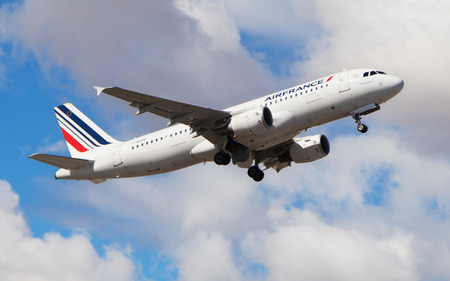
Air France, a simple communication blunder or a deeper malfunction symbol?
This last October the 5th, the sequences that follow the aggression of the Head of Human Resources and the Head of long-haul operations of Air France during a Central Works Council meeting reveals – one more time – a lack of constancy and coherence within the governmental communication. Above all, it highlights the difficulty for the State to conciliate different roles: responsible of the country’s image, of the public safety, guarantor of the social climate and shareholder of great companies while preserving its political interests.
Back on this another « blunder », particularly revealing.
On October the 5th, the Central Works Council meeting is interrupted by a great number of protesters. The Air France Management was just about to present a second proposal for the recovery plan, resulting in a workforce (2900 jobs) and airlines (10%) reduction. The images of the exfiltration of the two managers, without their shirt and scaling the gates of the headquarters’ company under the protection of safeguards overwhelmed by circumstances, were striking. They immediately invaded social networks and were in the headlines of French TV News and newspapers, and then foreign ones. An AFP report relates the remarks of the Anglo-Saxon press denunciating the “syndicalism and reluctance specific to France to reform the country”.
On the following day, the Prime Minister Manuel Valls goes on the site with Alexandre de Juniac, CEO of Air France KLM, and condemns violence that “nothing can justify” and adds that “Air France needs to face huge challenges (…) but [the] solution must first come from the company itself”. He appeals to the “responsibility of airplane pilots and to the SNPL”, their labor union.
We understand that the State condemns violence and supports the corporate plan; but won’t be directly involved.
In the hours and days that follow, the entire political class and trade unions react to the incidents occurred in Roissy and comment on the recovery plan of Air France. Though the declaration of its leader, Jean-Luc Mélenchon, the “Parti de gauche” (one of the French far-left parties) condemns “violence that we don’t see”. M. Martinez, General Secretary of the CGT (a left-wing trade union) adds that he would have “preferred” that Manuel Valls “gives his support to the 3000 employees threatened with dismissal” and that “the State faces its own responsibilities”.
Gradually, the controversy keeps expanding on the role of the State with respect to a company of which he is the main shareholder with 17%. On October the 9th, three inter-categories trade unions of Air France (FO, Unsa, and CGT) ask for the government to appoint “a representative of the State” in order to “find solutions and overcome the social blockage”.
The five persons suspected of violence toward the management of Air France are arrested at home on October the 12th. This arrest relaunches the controversy and helps radicalising the positions.
On the same day, the Prime Minister is interviewed on this point during his visit at Ryad in Saudi Arabia. He emphasizes the controversy by answering that “there are no excuses to violence by opposing social violence linked to Air France situation. Air France must be restructured”.
Yet, the President is at St Nazaire on the same day and nuances the governmental position by deploring the “brutality of a certain number of decisions that could be those of business leaders”. He calls for “an agreement that preserves jobs and ensures the competitiveness of this great company”. But he faces the refusal of the CGT representatives to greet him.
This position, though a little softer, is confirmed on the following day by Manuel Valls at the Parliament during the session reserved for members’ questions to the Government. He declares that “the plan can be avoided if the social dialogue keeps going”.
Simultaneously, Ségolène Royal, Minister of Ecology and transports, asks to the Air France Management to « suspend its plan » on the TV News Channel BFM TV. A position shared with Myriam El Khomri, Minister of Labour, who goes further by calling to Air France to « put several proposals on the table ».
But on October the 14th, Manuel Valls makes a shift, almost a withdrawal policy, by specifying that “the plan is not suspended”.
How can we analyse the governmental position on the question of the Air France’s recovery plan? Should we depict here an attempt to reconcile the government with a part of the left-wing electorate, shocked by measures that had been planned or by the arrest of presumed violent protestors? We may bear in mind that French regional elections are coming soon and the Socialist Party (PS) is likely to be beaten in most regions. Or, we might consider that this represents an answer to the threat of the CGT to no participate to the social conference organized on October the 19th. But it is more likely to be a (too) late awareness of the State’s responsibilities in companies’ management in which it holds an investment.
Nevertheless, the given impression is that of an unfortunate one. The example of Air France is significant; the governmental communication suffers from deep pains: no clear, coherent and constant political guideline, response to all media requests with no defined strategy, multiplication of the spokesmen – the president, the Prime Minister and three ministers expressed their viewpoint on the subject – and, above all, the evolution of positions depending on emotions from public opinion…
In 2013, in a stormy Ministerial Council, François Hollande focused attention on strict rules as regard communication: “stopping communicating in all directions”, “showing solidarity”, “asking authorisation to Matignon before any interview”. Here we go again, a recall may be imposed.
